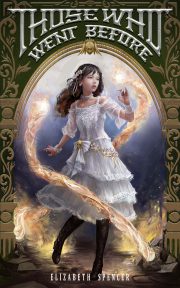Breaking Into Print: What Length Sells Best?
Written by Melisa Michaels
There’s a lot of advice floating around as to how best to achieve those first sales. Some say you should write short stories to break in. Some say better yet, write short-shorts since they take less time. Some say forget the short stuff: the real market is novels.
The answer that is right for you depends on your ultimate goal. If you just want to see your name in print, the quickest way might be to rob a bank. If you want to see your work in print, the quickest way might be to write for fanzines or other small magazines that pay in contributors’ copies. If you want to build a career, forget quick ways. There are none.
That’s the bad news. The good news is, you can probably do it if you try hard enough. With a modicum of talent and a whole lot of work, you can learn your craft and begin to make those first sales.
But What Length Will Sell?
The answer to this question is simple: what will sell to the real paying markets is the best work their editors can find that matches their editorial guidelines. Yes, they may more often have room for one more short-short than for another novella. Yes, you might therefore be able to sell three good short-shorts while remaining unable to sell one good novella.
Unfortunately that does not mean it’s a good idea to concentrate on short-shorts to the exclusion of novellas (or short stories, or novels), if what you want to do is build a career. You can’t learn as much writing short-shorts as you can writing short stories: there just isn’t room in a short-short for the kind of world-building, character development, plotting, etc. that are essential in longer works.
If you have a brilliant idea for a great short-short, by all means write it. Study the markets and get it in the mail to an editor who might like it. Then write something else. If you mean eventually to write longer works, start now.
But don’t start with the first book of an endless series in which the individual novels don’t stand alone: that will be no more useful to you than short-shorts. Works at either end of the length spectrum will teach you the least. Settle somewhere in the middle if you can, where you have room to develop all the skills you need as a writer, but where you also have some boundaries.
Short stories are adequate to develop basic plotting skills, and they will teach you word-management: you won’t have room to waste any. Novellas and novelettes will help you hone your plotting skills, world-building, and character development. Novels will give you room for more complex plotting, sub-plots, and all the skills required for the shorter works. Any length will give you practice in pacing.
Yes, But Which Length Should I Write?
I’ve been avoiding the real answer because it will almost certainly disappoint.
You must write your story just the length it needs to be.
In the final analysis, the best length to write is always the length the idea requires. Begin at the beginning and write until you reach the end. If you really want to be a good writer, don’t worry about markets until after the work is written. And don’t worry about wasting time writing some “wrong” length: no time spent writing is wasted. Not if you are writing to the best of your ability, working at it, and learning. In that case every hour spent writing is an hour spent honing your craft.
Okay, Then What’s the Secret to Making Sales?
Hard work. That’s it. That’s the secret.
The learning and honing process is unending. There will never come a day when you can say, “That’s it: I know all there is to know about writing and can sell my work from now on.” Very likely the best you’ll be able to say is that you’ve done your best, that the current work is finished, and that you think it may be marketable in its present state. (You’ll also know at that point how long the work is.) Good. Study the markets again, send it out, and start another.
Unfortunately when you’ve finished the next piece you may have learned enough to realize that the previous piece was not quite as good as you imagined at the time. Get used to it: if you’re good and work hard at this business, that will become a familiar sensation. It means you’re doing something right. You’re learning.
I Still Don’t Know Whether to Write Short Stories or Novels
One of the things you will learn to judge as you go along is how much room an idea is going to require to be told the way you want to tell it. You will learn to know the idea for a short story from that for a novel before either is written; and the idea for a short-short from either of the others. Novellas and novelettes are more difficult to tell from novels in the raw idea form, but you’ll know the idea for either from that for a short story or a short-short once you’ve had some practice.
Even then it should be your need, not the market, that determines which you choose to write. If you have an idea that is going to require a six hundred thousand word manuscript to do it justice, it would probably be best to put that one aside till you’ve made a name for yourself since really long novels are a greater risk for the publisher and therefore harder to sell; and if you happen to have an idea that’s going to come out just the length needed by one of the better-paying markets it would do no harm to give that idea priority. But for the most part, if your goal is to build a career by becoming the best writer you can be, it is wiser to concentrate on what you need to write than on what you think will sell.
But You Haven’t Told Me How to Break Into Print
Yes I have. There are five steps to the process, and each is crucial:
- Write.
- Study the markets.
- Send out your work.
- Write.
- Write.


